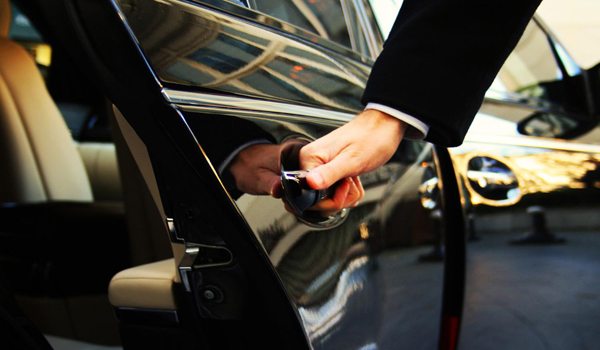Soon after his election, Arizona Gov. Doug Ducey made a drastic decision to pledge his support to ride-sharing companies such as Uber and Lyft by suspending the ongoing investigation into companies that were operating illegally under current Arizona law.
In addition, the Arizona Department of Weights and Measures announced that it would no longer be enforcing the same rules Arizona cab drivers are legally forced to follow.
Under debate is HB 2135, which outlines specific insurance guidelines separate from those of taxicab companies and “ride-share” companies. Although this was great news for Uber and Lyft, there were many people up in arms working hard to fight against the bill, chiefly sponsored by Rep. Karen Fann, R-Prescott.
The bill, which Ducey signed into law April 9, is intended to even the playing field for taxicab companies and ride-share companies.
Despite Fann’s protests, the legislature is considering regulating both ride-sharing companies and taxicab companies and setting fair minimum insurance rules.
The new rules also include vehicle inspections, driver background checks and a zero-tolerance policy for drug and alcohol use by drivers.
Arizona State University student Tim McGavock speculates on the bill’s final outcome.
“It makes sense that a Republican such as Ducey, who was previously the CEO of Cold Stone would be advocating for a company that started as nothing and has been built into such a large corporation.”
Tempe cab driver Clyde Riley is vocal in his opposition to the original bill.
“I am trying to get several drivers together to fight this,” Riley said. “You can’t have a law and only enforce it for half of the people.”
Riley said Uber and Lyft have all but destroyed his business and all of the taxi businesses around Tempe. Then-Gov. Jan Brewer vetoed a similar bill last year.
“I don’t know why our governor would do this to us, it is clear discrimination when our laws allow for certain companies to skate the rules, but not others,” Riley added. “To me it is the same thing as allowing only specific groups of people to shoplift. It just isn’t right.”
Riley said he feels that if Ducey really wants to change the insurance laws for vehicle transportation companies, then the law should apply to all parties. He argues that because they are essentially doing the same job and are fighting for the same customers, the rules should be equal across the board.
“If they aren’t’t going to let us take the stickers off of our car and do ride-share, then they shouldn’t’t be making the exception for these two companies,” Riley said.
Uber has boomed across the country in the past several years and now rivals almost all taxicab companies. With more than 160,000 drivers in 250 cities, Uber is no longer a small “entrepreneurial” company. Students everywhere are choosing to call a Lyft or Uber on their downloadable cellphone apps instead of calling for a cab.
“I love Uber way more than taking a cab since it is much cheaper.,” said ASU student Courtney Langfield. “I also like having the convenience of knowing where they are located at all times and when they will arrive. I also like how you have record of who your Uber driver is in case something was to happen. I feel a lot safer in an Uber (ride) than in a cab.”
“I used to get over 400 calls a week,” Riley said, “now I am lucky if I get seven.”
Riley has had to lay off his fellow driver and can barely afford a rented vehicle. He has been driving in Tempe for 26 years and now is close to being forced out of a job.
The problem with Uber and companies like it [under the original bill] is that they aren’t legally obligated to pay the same insurance fees that cab companies do, Riley said.
“I would love to lower my rates,” he said. “I’ve given quite a few people rides when they didn’t’t have money at all. But unfortunately, I need enough money to operate.”




